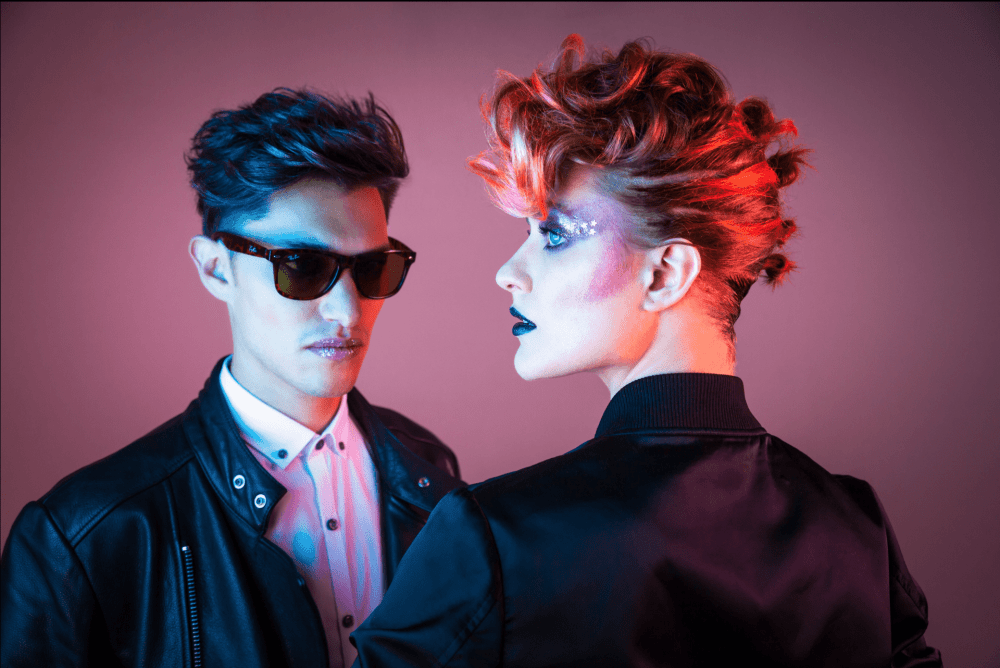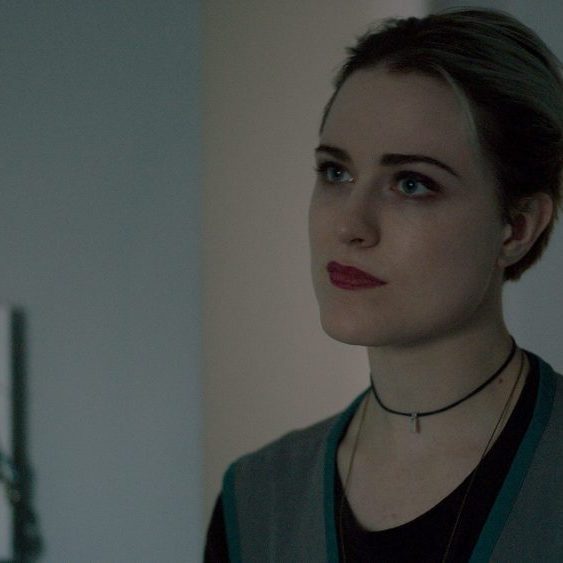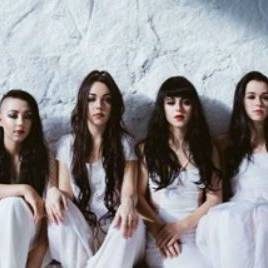
Beginning with Lifetime’s Once and Again, in which she falls in love with her best friend, Mischa Barton, all the way through to The Wrestler, in which she plays the estranged lesbian daughter of Mickey Rourke,
Evan Rachel Wood has never shied away from playing queer characters.
More recently, she appeared opposite Ellen Page in Into the Forest and in Allure, released in Spring, she delivers a startling portrayal of a lesbian abuser. Wood’s choice of roles is fearless, as befits a child actor who grew up with Jodie Foster as a career influence. While 10 years ago Wood didn’t publicly identify as bisexual, she’s been more forthcoming on social media; she briefly dated Kate Moennig after a visible Twitter flirtation, and in this interview, she opens up about bisexual acceptance.
Importantly, she revealed to Rolling Stone in 2016, and again on her YouTube channel, that she was a victim of sexual assault. In February of this year, Wood went to Washington, D.C., to testify before the House Judiciary Subcommittee on Crime, Terrorism, Homeland Security and Investigations as a rape survivor in the hope of moving the needle on legislation around sexual assault, and making a significant difference in the conversation about the need to increase legal protections for survivors.
When I caught up with Wood she was all fired up and ready to discuss the empowerment of women who have survived sexual abuse.
Allure is about intimate abuse and gaslighting in a same-sex relationship. Why did you take on this project?
I have a history of abuse, and I know a lot of people do, and I feel there’s a complicated version of it that recurs in relationships, and it’s one that we don’t often talk about. And I think gaslighting is just now starting to really come into high-profile public awareness because of the president.
So suddenly people are beginning to know that word. They’re looking it up and going, “That’s what that is? That’s happened to me!” And we realize it’s actually much more common than we think and much more complicated. I think some people are still confused about how someone could stay with an abuser…and we need to have that conversation so that people stop attacking victims and start asking the right questions: not “What’s going on with the victim—Why did she stay?”
You knew the film might be painful or triggering to victims, uncomfortable to watch, and yet you still wanted to do it?
Well, for that reason. There is a sense of responsibility, especially if you can relate to these characters. And because there were so many things I could relate to, it was almost like, “Look, I’m the only one who can do this.”
And if this does spark the conversation, [the filmmakers] are actually smart to have a victim or a bisexual playing that role—or somebody who can give you an educated answer about this piece of art. I knew there were things in this that I was going to understand, things that are really hard to explain unless you’ve been abused.
This year you testified in Washington about your history of abuse and what survivors need. Why now?
Amanda Nguyen [founder of the nonprofit Rise] reached out to me as a sexual assault survivor and we started to talk about it, and she just reached out for support—“Hey man, I’m here and I get it”— and that was invaluable to me and we sort of stayed pen pals, and then she asked me to come and tell our story to Congress. It was involuntary for me. It was like, “I can’t live my life like this anymore.
I need to be free of this.” This is obviously an issue for a lot of people, more than I even realized, unfortunately. So when someone says, “Come and tell your story to Congress, this might save lives and actually change the world right now,” what are you going to say? Now is the time that you have to be the one to walk through the fear and do it, and put yourself out there. And lucky me, it’s what I do for a living.
Some people have urged you to name the perpetrator of your assaults, which you haven’t done.
I don’t think that was the time to name anybody. I’m not ready. And I think it would’ve taken away from the real subject, and that’s not what that’s about. It was about the lasting effects and the things that we don’t talk about. We’re going to focus on the victims right now, and their journey, and their story, and that’s what we need to talk about.
What’s something that people don’t understand about victims of abuse?
You’re twice as likely to be abused again if you’ve been abused previously. And that means not even physically, that means emotionally as well. If you’ve ever been in a position where you’ve felt powerless, or like you didn’t have a voice, or you had to give up pieces of yourself to stay safe—that’s abuse.
And that puts you in the frame of mind to accept abuse. People who have been abused are more prone to health problems because their immune system is shot from cortisol and adrenaline, from always being in a fight or flight response. It literally changes you on a cellular level; you’re wired to be constantly looking over your shoulder and waiting to be attacked. That’s a real thing, and also the freeze response—that’s called tonic immobility, and it’s something that happens in animals.
If a woman says no 50 times and then freezes, or gives in because she feels she has nowhere to go, that’s considered consent. So there are three trauma responses: flight, fight or freeze. And if you’re a freezer you’re not protected under the law. These are the kinds of things we need to talk about to change.
In your singing career, you seem to have found power in a way that’s transcendent.
I had a band, Rebel and a Basketcase, for about a year, and I think it ran its course…There’s a lyric I wrote, “And I’m growing with every kick in the chest,” and I didn’t mean that as a metaphor—I meant that literally. Now that I’m going solo, I feel my music is reflecting that transcendence. I’m not afraid anymore, but I am vulnerable and I am willing to share that, but in a way that is about the phoenix rising from the ashes, the butterfly breaking out of the chrysalis.
That’s where I feel I am, musically. I’ve been singing for as long as I’ve been acting, and I feel like I’ve found my sound and my vibe, and I’m ready to see what I can do with that on my own. For me, it’s the ultimate form of expression. I love acting and I will always love it, but music for me is my real language. I would speak in just song or sounds if I could.
You identify as bisexual. Why are bisexual women so misunderstood?
Well, we don’t take them seriously, and they’re shunned by heterosexuals and by the gay community, much more than I think they should be. I did make a YouTube video explaining why I think they’re so misunderstood, because I think at least in the LGBT community some people come out as bi first to ease into coming out as gay and because it’s their experience they assume it’s everyone’s experience, and they assume that every bisexual is just too afraid to come out, and it’s like, No, that was your experience and that’s valid, but it is also its own thing—it’s not half-gay or half-straight.
It’s its own sexuality and its own identity. And I feel like we are just starting to have the conversation about what that really means. It’s different for everybody. For me, it’s not even just about who I sleep with. It’s a way of life and it’s how I identify my gender and how I carry myself and how I feel on a given day. I feel like I’m a fluid person and I can’t fit into one category. I think grey areas are uncomfortable for people. We want things to be compartmentalized as this or that.
How can we change that?
It’s going to take representation, and people just need to listen, at this point, because it’s not like there’s a lack of bisexuals. In fact, I think there’s a lot more than we even realize. Believe me, there’s a lot more in Hollywood that isn’t out. Can we all just come out, because I think that everyone would realize that every actor is bisexual—well, a large percentage, more than people know!
I understand the argument of “Don’t label yourself because that puts you in a category and labels are bad.” Well, yes and no, because sometimes people need a calling card, to hold up a signal so that people can go, “Oh, that’s what I am. I didn’t have words for it but you’ve given me the language so I can identify with something, and then I can go from there.” That’s why I chose to come out. So I can give someone a life preserver and be like, “Hey, it’s this. You’re OK.”


